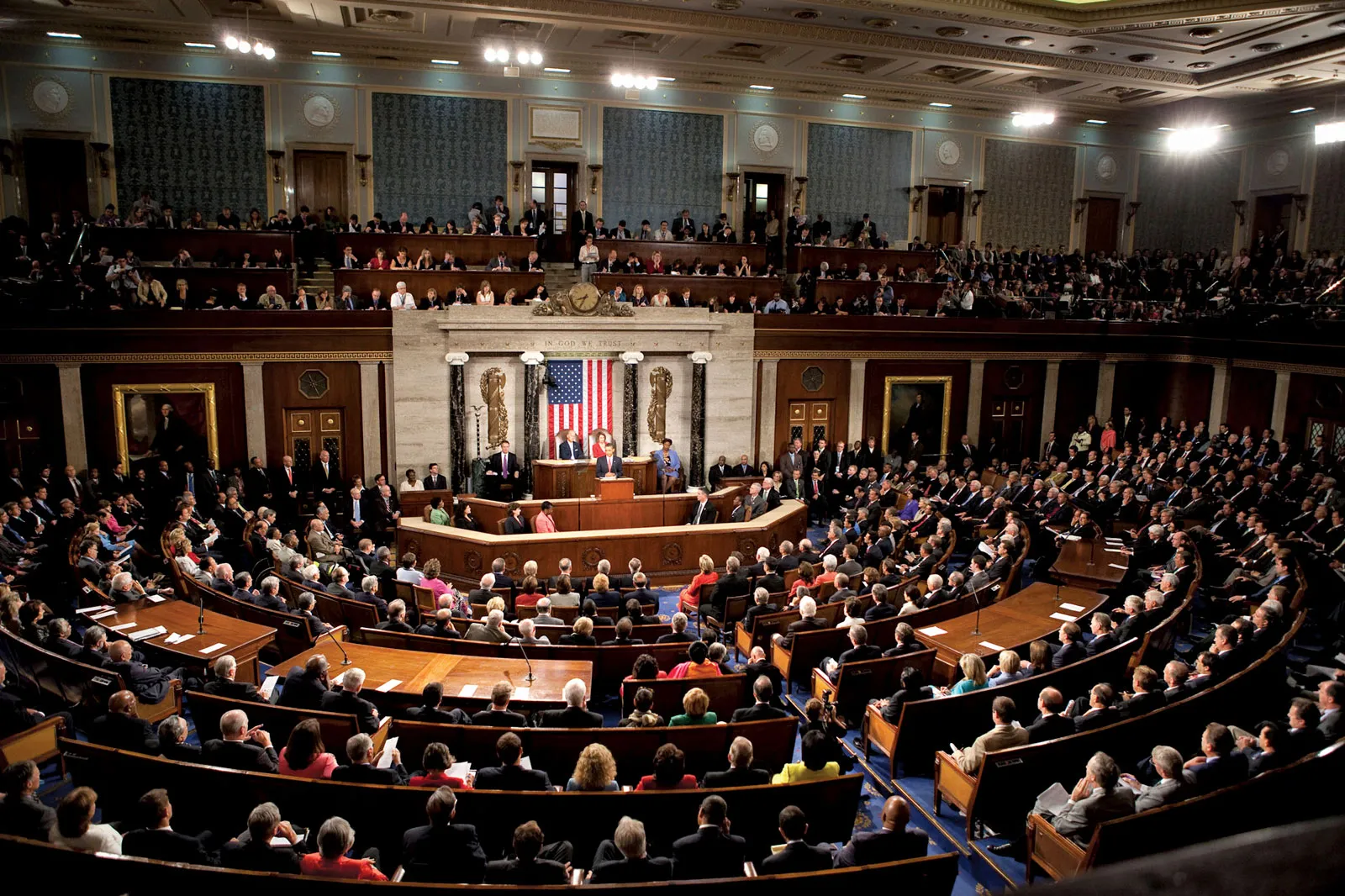The House of Representatives has overwhelmingly approved a resolution directing the Department of Justice to release files related to Jeffrey Epstein, marking one of the most bipartisan moves of the current congressional session. The vote followed months of pressure from lawmakers across the political spectrum, as well as demands from the public for greater transparency regarding the long-running and controversial Epstein case.
The resolution, spearheaded by a bipartisan coalition led by Reps. Thomas Massie of Kentucky and Ro Khanna of California, sailed through the chamber with a resounding 427–1 vote. The remarkable margin reflected rare unity in an era of intense political division, as members of both parties signaled their support for disclosing long-protected documents tied to one of the most scrutinized criminal cases in recent history.
Several survivors connected to Epstein’s abuse allegations were present in the House gallery during the proceedings. Observers noted emotional reactions as the final vote count was announced, with visible expressions of relief and long-awaited vindication. For many who have publicly advocated for the release of these records, the vote represented a significant milestone in their pursuit of answers, accountability, and closure.
The bill’s broad support within the chamber came after extensive debate, negotiations, and revisions addressing how to handle sensitive information within the documents. While the final version included privacy protections, the question of how to balance transparency with safeguarding the identities of individuals not implicated in wrongdoing remained a central point of contention throughout the legislative process.
The Lone Dissenting Vote
The only “no” vote came from Rep. Clay Higgins of Louisiana, who published an explanation shortly after the vote. In his statement, Higgins emphasized concerns regarding the potential harm that could result from indiscriminate disclosure of investigative files.
He expressed that, as written, the bill risked exposing “thousands of innocent people,” including witnesses, individuals who provided alibis, family members, and others mentioned in the documents but not accused of any crime. Higgins argued that releasing raw investigative material could jeopardize privacy, damage reputations, and erode trust in future law-enforcement processes.
“If enacted in its current form, this type of broad reveal of criminal investigative files, released to a rabid media, will absolutely result in innocent people being hurt,” he wrote. “Not by my vote.”
He also noted that the House Oversight Committee has already produced more than 60,000 pages of case-related records during its ongoing investigation, and that releasing further material should be approached carefully rather than rushed. Higgins added that he would be willing to support the bill if the Senate revises it to strengthen protections for victims, witnesses, and private individuals named in the files but not involved in criminal activity.
Concerns Among House Republicans
Despite the overwhelming vote, the path to approval was not entirely without reservations—particularly among Republican leadership. In the hours leading up to the vote, several GOP lawmakers expressed unease over the bill’s scope and the possibility of unintended consequences.
House Speaker Mike Johnson acknowledged these concerns but ultimately signaled his support. Standing before reporters earlier in the week, Johnson explained that he would vote in favor of the bill even though he believed the current version lacked sufficient safeguards for victims and uninvolved individuals.
He warned that a broad release of sensitive investigative files could have a chilling effect on future cooperation between the public and law enforcement.
“Who’s going to want to come forward if they think Congress can take a political exercise and reveal their identities?” Johnson asked. “Who’s going to come talk to prosecutors? It’s very dangerous. It would deter future whistleblowers and informants.”
Johnson also raised the possibility that releasing the documents without further review could inadvertently expose the identities of undercover agents or jeopardize ongoing investigations.
“The release of that could publicly reveal the identity, by the way, of undercover law enforcement officers who are working in future operations,” he said.
Still, Johnson voted in favor, citing overwhelming public demand for transparency and President Donald Trump’s public endorsement of making the records available.
Democrats and Republicans Unite Behind Transparency Push
Democrats—many of whom were instrumental in shaping and advancing the bill—framed the vote as a crucial step toward shedding light on a case that has long fueled speculation, mistrust, and controversy.
For years, lawmakers and activists have criticized the opaque handling of Epstein’s criminal history, the circumstances surrounding his death, and the limited public access to investigative records. Democrats argued that releasing the files is necessary not only for accountability but also for restoring public trust in federal institutions.
One of the bill’s lead sponsors, Rep. Ro Khanna, emphasized that transparency is essential for ensuring justice and addressing longstanding questions. Khanna and Massie had been working for months to persuade hesitant lawmakers and push the legislation to the floor.
Their bipartisan collaboration on the bill has been praised as an example of what Congress is capable of when members prioritize the broader public interest over party lines.
Survivors Watch History in the Making
The presence of Epstein’s survivors during the vote added a solemn and emotional weight to the moment. Many have spent years advocating for greater transparency and justice, often facing legal, institutional, and psychological obstacles along the way.
Their attendance underscored the human impact behind the political process. Observers reported that several survivors clasped hands, nodded in relief, and reacted visibly as the final tally was read aloud. The vote marked a significant moment in what for them has been a long, painful pursuit of truth.
While the release of the files will not erase what they endured, lawmakers expressed hope that the measure will provide clarity, accountability, and a degree of closure.
What Happens Next?
With the House having passed the resolution by an overwhelming margin, the bill now moves to the Senate. Senators will evaluate whether to uphold the House version or introduce additional amendments, including the privacy protections referenced by Rep. Higgins and supported by Speaker Johnson.
The Department of Justice will also need to assess the timeline and logistics required to prepare the documents for release, particularly if sensitive information must be redacted or reviewed for national security implications.
Legal experts note that the process may take time, especially if the files include confidential investigative materials, sealed court records, or information tied to ongoing or related cases.
Still, the bipartisan nature of the vote suggests that the Senate may feel significant pressure to act swiftly. Public interest in the Epstein case remains extremely high, and lawmakers in both parties have signaled their commitment to providing answers.
A Rare Moment of Unity
In an era marked by deep political polarization, the near-unanimous vote on the Epstein files stands out as a rare moment of unity within Congress. While lawmakers differ on how best to protect privacy and safeguard future investigations, their shared insistence on transparency reflects the powerful public demand for accountability in one of the most widely discussed criminal cases in recent memory.
The upcoming Senate deliberations will determine how quickly the material is released, what it contains, and how it might reshape public understanding of the Epstein case. For now, the House’s decisive action marks a historic step toward uncovering records that many Americans have waited years to see.

Emily Johnson is a critically acclaimed essayist and novelist known for her thought-provoking works centered on feminism, women’s rights, and modern relationships. Born and raised in Portland, Oregon, Emily grew up with a deep love of books, often spending her afternoons at her local library. She went on to study literature and gender studies at UCLA, where she became deeply involved in activism and began publishing essays in campus journals. Her debut essay collection, Voices Unbound, struck a chord with readers nationwide for its fearless exploration of gender dynamics, identity, and the challenges faced by women in contemporary society. Emily later transitioned into fiction, writing novels that balance compelling storytelling with social commentary. Her protagonists are often strong, multidimensional women navigating love, ambition, and the struggles of everyday life, making her a favorite among readers who crave authentic, relatable narratives. Critics praise her ability to merge personal intimacy with universal themes. Off the page, Emily is an advocate for women in publishing, leading workshops that encourage young female writers to embrace their voices. She lives in Seattle with her partner and two rescue cats, where she continues to write, teach, and inspire a new generation of storytellers.









